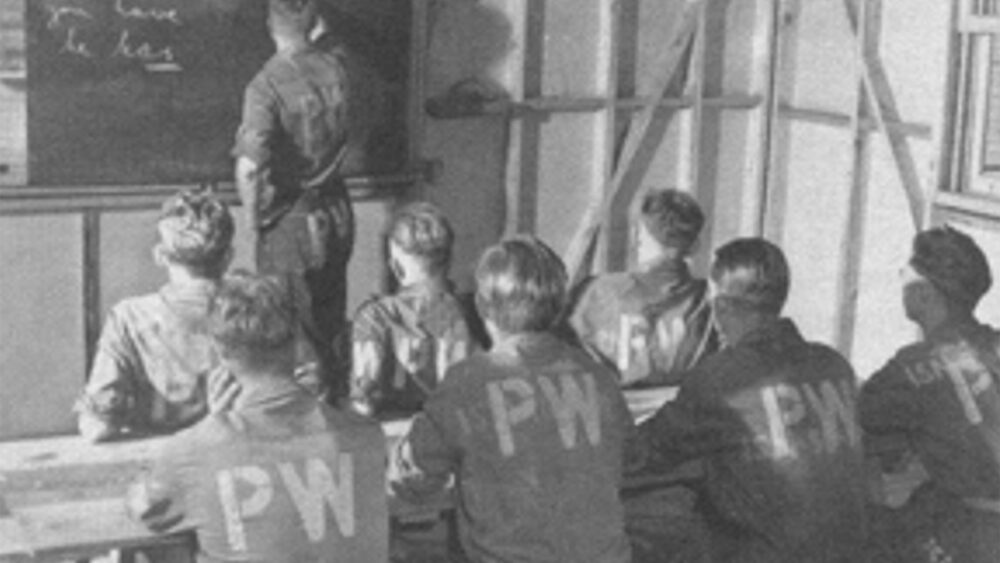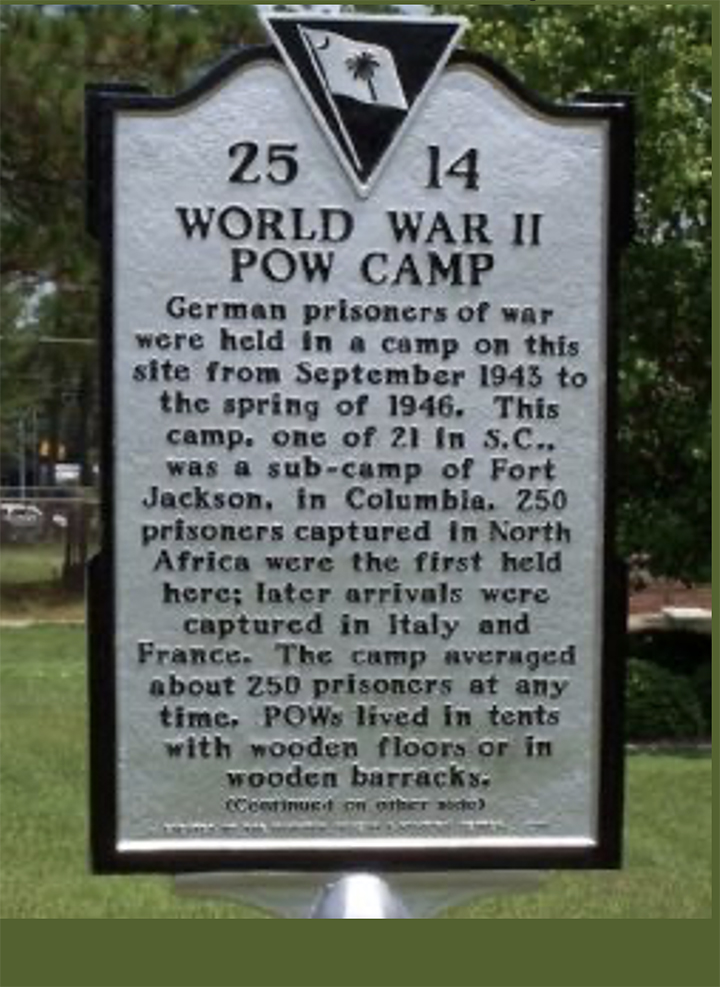You’ve seen movies about Americans in German POW camps during World War II — “The Great Escape,” “Stalag 17,” and so forth. But did you know that more than 8,000 German – and Italian — prisoners were held right here in South Carolina during that global conflict?
A network of 25 camps were scattered all across the state, right here on the homefront.
Fritz Hamer, the South Carolina Confederate Relic Room and Military Museum’s former curator of history, will tell all about it in a free lecture at noon on Friday, Nov. 21, at the Cayce-West Columbia Branch of Lexington County Public Library at 1500 Augusta Road in West Columbia. The lecture, “German POWS in South Carolina,” is part of the Relic Room’s regular Noon Debrief program, and the public is invited.
Fritz has generously volunteered to step in after Kim Stacy – who had been scheduled to speak at the library on Friday, experienced a sudden family emergency. We all fervently wish Kim the best at this difficult time, and express gratitude that Fritz is fully prepared to deliver his program on such short notice.
At the end of the war in 1945, there were about 425,000 German, Italian, and Japanese prisoners of war held across the country. The number in South Carolina has been estimated as between eight and 11 thousand. Most of those were German, with a few Italians in the mix. They lived in small camps across the state, and were generally employed cutting pulpwood or working on farms.
This helped address the labor shortage that existed during the war, with most fit young men off fighting. So, many POWs were put to work harvesting such crops as peanuts, cotton, and peaches. When they weren’t working, recreation was available, with soccer fields, gardens, and reading rooms in the camps.
The prisoners were mostly sent home by some point in 1946. But about 5,000 Germans of those who had been held across the country ended up coming back to live in the United States.
Come learn more about this little-known facet of the greatest conflict in human history.




Comments are closed.